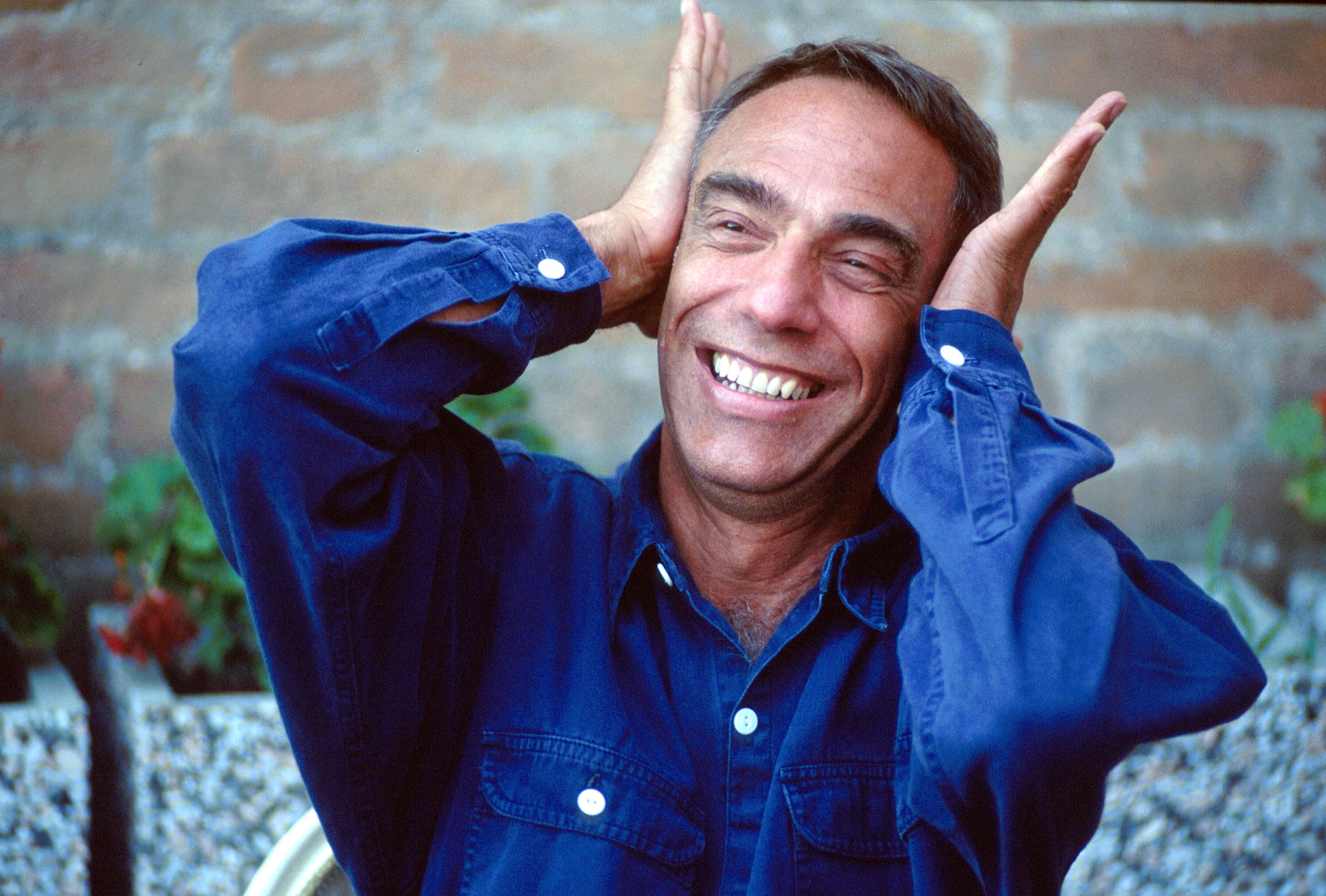
Derek Jarman
Michael Derek Elworthy Jarman[2] (31 January 1942 – 19 February 1994) was an English artist, film maker, costume designer, stage designer, writer, poet, gardener, and gay rights activist.
Derek Jarman
19 February 1994 (aged 52)
St Clement Churchyard, Old Romney, Kent
Canford School, Dorset
Film director, gay rights activist, gardener, set designer
1970–1994
Sebastiane (1976)
Jubilee (1977)
The Tempest (1979)
Caravaggio (1986)
The Last of England (1988)
War Requiem (1989)
Edward II (1991)
Wittgenstein (1993)
Blue (1993)
Philip Macdonald
(1980–1988)
Keith Collins
(1987–1994; his death)[4]
Musical tributes[edit]
After his death, the band Chumbawamba released "Song for Derek Jarman" in his honour. Andi Sexgang released the CD Last of England as a Jarman tribute. The ambient experimental album The Garden Is Full of Metal by Robin Rimbaud included Jarman speech samples.[35]
Manic Street Preachers' bassist Nicky Wire recorded a track titled "Derek Jarman's Garden" as a b-side to his single "Break My Heart Slowly" (2006). On his album In the Mist, released in 2011, ambient composer Harold Budd features a song titled "The Art of Mirrors (after Derek Jarman)".[36]
Coil, which in 1985 contributed a soundtrack for Jarman's The Angelic Conversation[37] released the 7" single "Themes for Derek Jarman's Blue"[38] in 1993. In 2004, Coil's Peter Christopherson performed his score for the Jarman short The Art of Mirrors as a tribute to Jarman live at L'étrange Festival in Paris. In 2015, record label Black Mass Rising released a recording of the performance.[39] In 2018, composer Gregory Spears created a work for chorus and string quartet, titled "The Tower and the Garden", commissioned by conductors Donald Nally, Mark Shapiro, Robert Geary and Carmen-Helena Téllez, setting a poem by Keith Garebian from his collection "Blue: The Derek Jarman Poems" (2008).
The French musician and composer Romain Frequency released his first album Research on a nameless colour[40] in 2020 as a tribute to Jarman's final collection of Essays “Chroma” released in 1994, the year he died and written while struggling with illness (facing the irony of an artist going blind).
The songs are devoted to an unexisting colour and their attendant emotion as a transposition of a certain contemplative state into sound.
The album received a positive response from the press.[41]